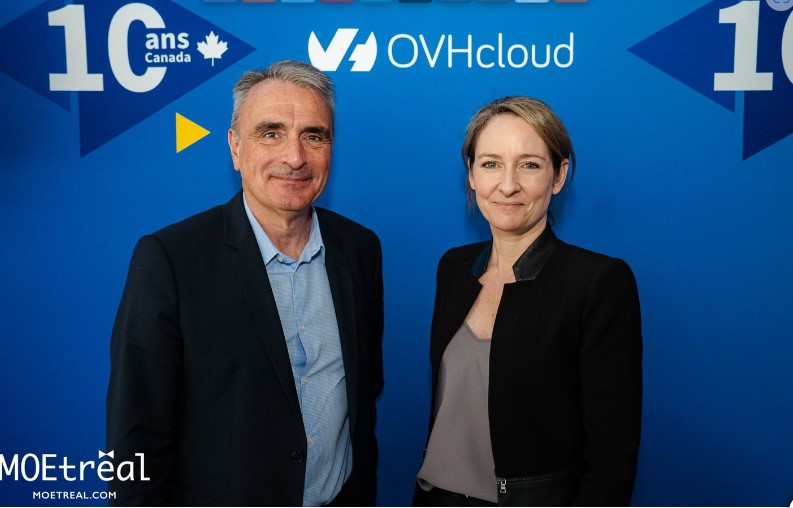In the IT world, globalization has proved a double-edged sword. If the growth of large provider organizations with world-wide capacity has helped to ensure frictionless, standardized delivery of technology products and services, wherever the customer location(s), globalization has a darker twin – the establishment of multi-national corporations that operate in or across jurisdictions, in some cases with less than optimal regard for national practice norms or expectations. For citizens, the independent operation of the large multinational means that many protections once offered by the nation state have been eroded, and must be recaptured in legal arenas where cross jurisdictional enforcement may be lacking.
The multinational maverick is a feature across sectors, but especially apparent in ICT, where issues such as monopolistic tendencies and unfair competition may be reinforced by the technology itself. Cases that evolved from platform ubiquity with Microsoft business and personal productivity solutions,[1] for example, or with Google search[2] readily spring to mind due to their successful prosecution. But challenges to fair business practice are a growing issue with cloud as well,[3] where an inability to impose interregional service level standards and protections means that citizens/consumers must also rely on the corporation’s willingness to adequately safeguard data, to ensure privacy, and increasingly, to deliver products and services in a sustainable way.
Many countries are now working to better manage the unfettered operation of multinationals. As the cases above illustrate, the EU has taken the most vigorous action to reign in the large IT providers, and to reaffirm the rights of both citizens and the business community. Following the efforts of some of its member states, the EU is also now leading the way in setting legal standards for the operation of corporations across jurisdictions. In its draft Corporate Sustainability and Due Diligence Directive,[4] for example, the EU includes within the scope of the new legislation both upstream and downstream supply chain members and corporations operating within the EU (rather than simply registered within it); in this way, the Union is actively challenging the mechanisms by which transnational corporations operate around states’ legal protections to create a stateless impunity.
Ultimately, the goal is to create the legislation needed to ensure transparency and governance, to require more responsible operation on the part of the large corporation – and to encourage corporations to assume greater responsibility for their own impact on a broader concept of stakeholder, that is not limited to the shareholder, but finds a place for individual workers, society, and the planet. The Draft states:
The proposal aims to foster sustainable and responsible corporate behaviour throughout global value chains. Companies play a key role in building a sustainable economy and society. They will be required to identify and, where necessary, prevent, end or mitigate adverse impacts of their activities on human rights, such as child labour and exploitation of workers, and on the environment, for example pollution and biodiversity loss. For businesses these new rules will bring legal certainty and a level playing field. For consumers and investors they will provide more transparency.
But regulatory wheels grind slowly, and in the absence of clear and comprehensive legislation that all jurisdictions will have agreed to, organizations may be challenged to understand the limits of their responsibility, or the legal or business consequences of non-compliance. Despite this vacuum, it’s critical that companies act – on the issue of climate change and sustainability in particular, as time is running out to introduce practical measures needed to limit global warming to the 1.5 degree Celsius increase that the IPCC views as necessary to avoid the worst case climate scenarios.
In the absence of a clearly defined legislative framework that defines corporate requirements, many forward-thinking organizations are now developing, albeit haphazardly, their own environmental programs, along with CSR messaging to promote their good works. But more advanced companies are also now working to develop the philosophical underpinnings that can serve as a corporate value statement – which can serve as the foundation for building a consistent and comprehensive program of operational best practice that can deliver clear returns on science-based environmental targets. In the case of OVHcloud, this foundational justification appears in the form of a founder mythology that establishes key company values that readily translate to actionable plans on ESG.

Founded as an Internet hosting company in Roubaix, France in 1999, OVHcloud is Europe’s largest cloud services provider, and now runs data centres in 19 different countries, including Europe, Asia and North America. In 2021, the company completed a successful IPO, to support further expansion and growth. And this June (2022), it celebrated a decade’s worth of operation in Canada at the company’s data centre facility in Beauharnois, Quebec. At this celebration, company CEO Michel Paulin outlined corporate principles that have guided the evolution of the OVHcloud approach to customers, society, and environmental sustainability. It is an approach that is in marked contrast to that of many businesses, which focuses on multi-stakeholder interests, and that places the company founder, Octave Klaba at the centre of the OVHcloud corporate vision. According to Paulin,
Octave founded the company 23 years ago and he’s a majority shareholder. His dream, his commitment is not to profit; it is to create something based on European values. He was in Poland when the Berlin Wall came down, and he always reminds me that he knows what it means not to be free. So our signature is ‘innovation for freedom.’ Our vision is to continue to innovate, and our commitment to society is to continue to bring innovative solutions that will allow customers, and all stakeholders to act freely. For us, “act freely” means a lot; it’s important to have freedom in the business, but it also means freedom of choice so no monopoly de facto. But it also means that you own your data, and that we provide protection for that. And finally, we believe that frugality and innovation will be the drivers of sustainability.
In the OVHcloud schema, Paulin drew a direct line between the freedom to innovate and the company’s ability to deliver on sustainability. “The data centre world is often seen as a problem,” he noted, “but in fact, we [cloud providers] are part of the solution.” On one hand, he explained, the fast metro train is more sustainable than the car; at the provider level, the [service provider] data centres operate much more efficiently than would a number of small, isolated devices that would be found in an enterprise environment to support the same workload. Paulin attributed this efficiency to innovation that is part of an ongoing effort to improve sustainability – a long term commitment at OVHcloud that began in 2003 with the introduction of water cooling, which has recently advanced with the introduction of immersion water cooling.[5] But Paulin also aligned this effort with frugality, a core value that founder Klaba emphasized from company inception. According to Paulin, cooling innovation was designed to reduce energy consumption, as well as cost:
This conviction rose out of cost; it was good for the business, and it was also good for the planet. We are now in the fifth iteration of water cooling, and we are set to launch a new technology, immersion water cooling. We are very proud of the reduction in energy consumption we have been able to achieve over the last 18 years, and in water consumption (we use only a tenth as much water as our peers). We are also efficient because we build our own servers. With servers, 70 percent of carbon impact lies in the construction (utilization is only 30 percent). Because we design and build our own servers, we are able to use less composites, and less material – and more importantly, we are able to refurbish our servers.
The efficient design of servers according to an ‘industrial model’, and their reuse in the business are examples of new circular economy principles that Paulin claimed are “part of our overall ambition – innovation for freedom.” This kind of new thinking about sustainability is increasingly critical today when the ongoing digitization of business and social life is driving exponential data growth. For a data centre provider that remains committed to science-based environmental targets, this growth represents a paradox. OVHcloud has committed to Net Zero carbon operation in production by 2025, and to Net Zero in its extended supply chain by 2030; however, company leadership must tread a fine line to counsel data sobriety while delivering shareholder value. According to Paulin, it is possible to realize the business opportunity presented by increasing demand for data centre services, while holding the line on carbon through the application of frugality, innovation, and “reason”:
Data is like a utility; it is as important as energy, as transportation, agriculture, and industry. Data is really at the centre of society, and the amount of data will only increase. But we need to manage this ‘with reason.’ For me, as CEO, to drive people to produce, store and compute with as much data as possible is not reasonable. There is a gap between something that is long term viable and something which is good for your bottom line.
To address this gap, Paulin expects OVHcloud will rely on further innovation, increasing efficiency apace with market growth. At the same time, however, the company is working to engage a broader community in developing a more reasonable approach to data usage:
Data is growing exponentially, but not all of it is useful data. Hosting a picture of last night’s dinner might not be sustainable; that’s why we talk about frugality. We create data, but we need to understand what the consequences of creating all this data are. As a provider, we are giving customers the tools to understand the consequences of what they are doing so that they can take steps to reduce consumption. The challenge is exactly as you say; we know the data will increase, it’s good for our business. But we will need to support that with new levels of efficiency, frugality, and innovation.
To support clients’ own journey towards more sustainable operations, OVHcloud now provides data on the infrastructure users’ own water, carbon, and energy consumption. Engaging the client ecosystem is an important input to climate impact reduction in a scenario where the provider (OVHcloud) has no control over customers’ data storage and computation needs. It is designed to compliment key activities that OVHcloud is now engaged in, guided by a well developed ESG program with a dedicated team located mainly in Europe, who are supported by additional staff resources that have been placed in each business unit to act as program sponsors in their respective areas. According to Paulin, OVHcloud’s “program has many faces, but the most prominent is green,” and it focuses on improving resource intensity by reducing water, energy, carbon impact in the data centres. The second program area focuses on building efficiency in server manufacture and smart (local where possible) procurement that advantages environmental performance (in Southeast Asian chipsets, for example). A third area is server refurbishment and component recycling, and a final input is use of renewable energy (100 percent in France and in Canada).
The seeming paradox of ‘reasonable growth’ is, ironically, producing business dividends. OVHcloud has begun to see a shift amongst its client base in their prioritization of green performance; Paulin pointed to customers like Deloitte France, who have made public statement on their decision to contract with OVHcloud due to the provider’s environmental profile. Estelle Azemard, VP Americas OVHcloud, has recognized a similar swing in North America, where customers have typically included green as only one provider criteria. Recently, however, the company has been approached by several potential partners wanting to talk about the sustainability question first: “something is happening, and we could be very surprised by the outcomes,” she added.

Deep thinking about sustainability, and its place within the corporate vision, is a key enabler of the green programs that have secured OVHcloud’s positioning as a responsible provider of data centre services. It has also helped the organization to reconcile potential gaps between environmental and financial performance – buttressing the near-term interests of company stakeholders as well as the longer-term sustainability of the organization and society it is pledged to support. According to Paulin,
We know reducing our energy is a requirement in Europe where there are issues with cost. By assembling our own servers, we also reduce cost. Some people pit economy against sustainability. Octave is convinced that if sustainability and economy are not best friends, they have mutual interests. Today, our sustainability program allows us to be much cheaper than that of our competitors and to have a price for performance ratio that is above the market. This is not the only one, but it is one element in our price/performance lead – it is a competitive advantage for us.
[1] Microsoft Corp. v. Commission. Wikipedia. https://en.wikipedia.org/wiki/Microsoft_Corp._v._Commission.
[2] Francois Aulner and Foo Yun Chee. Google loses challenge against EU antitrust ruling, $2.8-bln fine. Reuters, Nov. 10, 2021. https://www.reuters.com/technology/eu-court-upholds-eu-antitrust-ruling-against-google-2021-11-10/.
[3] Paresh Dave. Microsoft’s cloud business targeted by EU antitrust regulators. Reuters. April 1, 2022. https://www.reuters.com/business/microsofts-cloud-business-targeted-by-eu-antitrust-regulators-2022-04-01/
[4] European Commission. Just and sustainable economy: Commission lays down rules for companies to respect human rights and environment in global value chains. https://ec.europa.eu/commission/presscorner/detail/en/ip_22_1145
[5] Mary Allen and Francois Sterin. “Building to Net Zero,” Greener Data. Actionable Insights From Industry Leaders. JSA & Associates. 2022.








